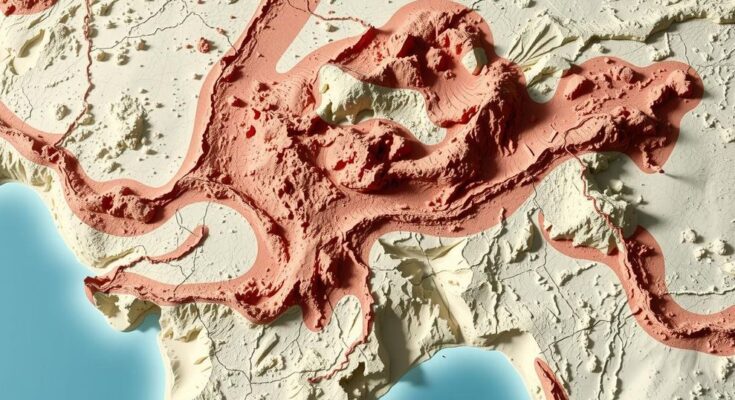A 3.6 magnitude earthquake struck Balochistan’s Kalat area, causing panic but no injuries or damages. The quake was recorded at a depth of 33 kilometers, following a previous earthquake in Sibi that registered 4.7 on the Richter scale.
On Sunday, an earthquake of magnitude 3.6 struck Kalat and surrounding areas in Balochistan, Pakistan, causing residents to evacuate their homes in fear. The seismic event prompted many to seek solace through prayer, reciting verses from the Holy Quran. Fortunately, there were no reports of casualties or damages following the quake. The National Seismic Monitoring Centre recorded the earthquake at a depth of 33 kilometers. Prior to this, tremors were reported in the region of Sibi, with an earthquake of 4.7 magnitude occurring just two days earlier, prompting similar reactions among the populace.
Balochistan has recently experienced a series of earthquakes, reflecting its geological volatility. Earthquakes that occur in this region often cause concern due to their unpredictability and potential for damage. The tremors felt in Kalat are part of a broader pattern of seismic activity affecting Pakistan, with prior incidents reported in Sibi and other cities in Punjab. Understanding the local geological conditions can provide insights into the frequency and intensity of such events.
In summary, the recent earthquake in Kalat and its surrounding areas elicited a swift and fearful response from the local population yet resulted in no reported casualties or infrastructural damage. This reflects both the resilience of the residents in the face of natural disasters and the seismic instability inherent in the region. Continuous monitoring of seismic activity remains crucial to ensure public safety.
Original Source: dunyanews.tv




